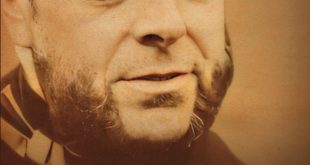Ever wonder if you can truly know someone? Like, really, truly get them? It’s a question that’s been bouncing around in my head for ages, especially when I think about biographers. These folks spend years digging into someone’s life, trying to piece together a complete picture. But is it even possible? It’s like trying to catch smoke with your bare hands, isn’t it? Let’s dive into why biography is such a tricky, yet fascinating, endeavor.
The Illusion of Completeness: A Biographer’s Dilemma
Think about it: a biographer’s job is kinda like being a detective, right? Except instead of solving a crime, they’re trying to solve a person. But what if the evidence is, well, a little shady?
The Subjectivity of Evidence
You know how it is – everyone’s got their own version of the truth. When biographers are sifting through letters and diaries, they’re not just reading facts, they’re reading opinions and interpretations. And people aren’t always honest, especially when they are writing about themselves. So, how do you sort through all of that and find the “real” story? It’s a bit of a puzzle, to say the least. I sometimes wonder if biographers need to be part psychologist to figure this out.
The Gap Between Public Persona and Private Self
We all wear masks, don’t we? The person we show to the world isn’t always the same as who we are inside. Biographers have to deal with that too. They might uncover all sorts of public records and interviews, but that doesn’t necessarily reveal the secret anxieties or hidden desires that make a person who they truly are. It’s like trying to understand a painting by only looking at the frame. You get a sense, but you’re missing the whole picture, aren’t you?
The Tools of the Trade: Methods and Approaches
So, how do biographers even try to tackle this near-impossible task? Well, they’ve got a few tricks up their sleeves.
Archival Research and Primary Sources
The first step is usually diving deep into the archives. I imagine them, surrounded by stacks of old papers and dusty books, hunting for clues. They’re looking at original documents, letters, photos – anything that can give them a glimpse into the person’s life. It’s like a treasure hunt, but instead of gold, they’re searching for insights.
Interviews and Oral Histories
Then there are the interviews. Talking to people who knew the subject – family, friends, colleagues – can be incredibly valuable. It’s like getting different pieces of the puzzle from various sources. Oral histories are especially cool because you get a personal, unfiltered perspective. But of course, everyone remembers things differently, so it’s still up to the biographer to piece it all together.
Psychobiography: Applying Psychological Theories
Some biographers even go a step further and use psychological theories to analyze their subject. This is called psychobiography. It can be fascinating because it tries to understand the “why” behind a person’s actions. But it’s also a bit risky because you’re basically psychoanalyzing someone from afar. You’ve gotta be careful not to impose your own ideas and biases, you know?
The Ethical Considerations of Biography
Writing about someone’s life isn’t just a matter of gathering facts; it’s also about being ethical. There are definitely some lines you just shouldn’t cross.
Privacy and Respect for the Subject
Think about it: you’re digging into someone’s personal life, often after they’re gone. You’re uncovering potentially embarrassing or sensitive information. How do you balance the public’s curiosity with the subject’s right to privacy? It’s a tough call, and it requires a lot of respect and consideration. I believe it all comes down to intention, doesn’t it?
Objectivity vs. Empathy
Biographers have to walk a tightrope between being objective and being empathetic. You need to understand your subject, to see the world through their eyes. But you also need to remain unbiased, to avoid painting them in an overly positive or negative light. It’s a delicate balance, and it requires a lot of self-awareness. Can we ever truly be objective, though? I kinda doubt it.
So, after all that digging, do biographers ever truly know their subject? Maybe not completely. But they sure get closer than most of us ever will. And in the process, they give us a glimpse into the complexities and contradictions that make us human. And isn’t that what really matters?
 Cloudabouts
Cloudabouts



